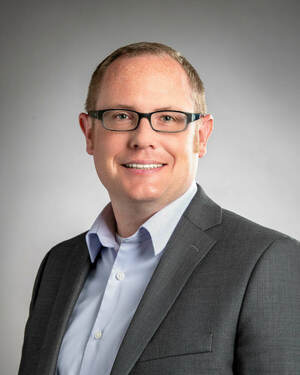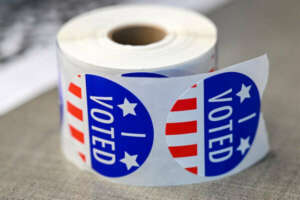According to the Brookings Institution, the 2022 midterm elections “may well be the first elections ever where the elections themselves are on the ballot.” More than 300 candidates on the ballot this month questioned the results of the 2020 presidential election, and many of the same candidates have not committed to accepting the results of their own races.
But what do the voters themselves think? Will the public say the winners came by their victories fairly or fraudulently? Thanks to new funding, Notre Dame political scientist Brian Fogarty will apply the tools of data science to find out. Fogarty will also identify ways to combat misperceptions about election fraud and restore confidence in American elections.
Fogarty, who serves as director of Notre Dame’s Center for Social Science Research and associate director of the Lucy Family Institute for Data & Society, will work with experts on political information from Dartmouth College and the University of Exeter in the United Kingdom. Fogarty and his colleagues will focus on how claims about fraud in the 2020 presidential election shape perceptions of fraud in the 2022 midterms.

Fogarty’s project is one of 18 endeavors newly funded by the MIT Election Lab with support from the Election Performance Project, LLC, a subsidiary of the Pew Charitable Trusts. Each project looks at the role of elections in the evolving landscape of American politics and considers ways to better understand and administer them.
Fogarty said his new funding has enabled his team to carry out their study at a critical time when “the democratic norm of accepting the legitimacy of election results is under threat in America.”
“Immediately following the 2020 election,” Fogarty explained, “political rhetoric shifted away from false claims of individuals committing registration and voting fraud, and towards false claims about the integrity of election administration. This new funding from the MIT Election Lab allows us to assess the persistence of that narrative throughout the stages of the 2022 election and to respond to rapidly changing events on the ground in our research design and data collection procedures and measures.”
Fogarty’s study uses a multi-wave survey. The survey asks about perceptions of election fraud, confidence in vote counting, and the acceptance of the election results. It also includes informational experiments. Fogarty said these will allow his team to evaluate several strategies for reducing misperceptions of election fraud. The researchers also have access to some data about respondents’ internet activity. They will use this data to examine whether online misinformation shaped participants’ perceptions of election fraud and the legitimacy of the 2022 election.
Fogarty and his colleagues will also share practical recommendations based on their findings. They aim to equip policymakers, election administrators, and journalists who are working to combat election misperceptions and bolster confidence in election outcomes.
“We hope to do more than just to contribute to scholarship on understanding the election fraud information environment,” Fogarty said. “We also want to provide insight and solutions that can reverse the deterioration of democratic norms in contemporary American society.”
Contact:
Brett Beasley / Writer and Editorial Program Manager
Notre Dame Research / University of Notre Dame
bbeasle1@nd.edu / +1 574-631-8183
research.nd.edu / @UNDResearch
About Notre Dame Research:
The University of Notre Dame is a private research and teaching university inspired by its Catholic mission. Located in South Bend, Indiana, its researchers are advancing human understanding through research, scholarship, education, and creative endeavor in order to be a repository for knowledge and a powerful means for doing good in the world. For more information, please see research.nd.edu or @UNDResearch.
Originally published by Brett Beasley at research.nd.edu on November 08, 2022.
